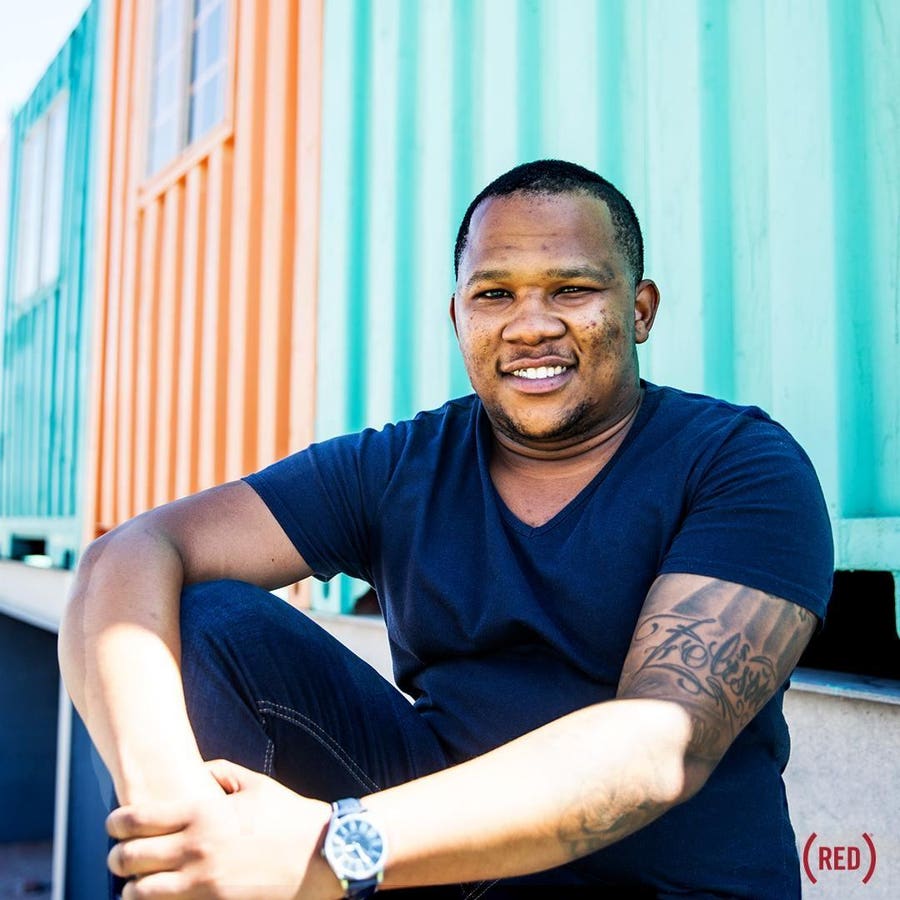Today marks International Day of the Girl, a day established by the United Nations to highlight the inequities that adolescent girls and young women face everywhere. It is a day to celebrate the awesomeness of girlhood while recognizing the work that’s needed to ensure every girl and young woman has the same opportunity as every boy and young man.
Despite major progress for women, the United Nations projects it will take the world another 286 years to achieve gender equality. The economic, political, and social gaps that women face both in the United States and around the world are immense and infuriating. And gender inequalities in education, healthcare, and gender-based violence put young women and girls at even greater risk.
Nowhere is this injustice more evident than in sub-Saharan Africa, where young women are three times as likely to be living with HIV than young men. I recently traveled to South Africa to visit several global health sites that provide life-saving testing, treatment, and care to marginalized communities. Every week, roughly 4,000 adolescent girls and young women are infected with HIV globally–and nearly three-quarters of them live in sub-Saharan Africa.
On my trip, I met with some amazing leaders who are building a brighter future for women and girls. I hope their inspiring stories and the incredible power of their example leave you feeling equally inspired and empowered.
Tsakane Onnica Maluleke, Peer Group Trainer, Childline
As a young girl, Tsakane Maluleke was feeling overwhelmed with life. She soon stumbled across Childline, a South African program that reduces HIV incidence while increasing school retention and economic opportunity among young people. Maluleke found her “guardian angel” who listened to her and offered pragmatic advice that turned her life around. After working with the Childline staff to overcome her own challenges, Maluleke became a peer educator for other at-risk youth and is now a program trainer.
Poverty, gender-based violence, and lack of access to youth-friendly health services have caused young women to be disproportionately impacted by HIV. By providing mental and physical health services alongside job training and educational assistance in a safe and supportive environment, Childline attendees are empowered with the knowledge to make smart and safe decisions as they enter adulthood.
”When you’re overwhelmed and have nobody to talk to, anxiety rises. When you’re getting the wrong advice, you’re obviously going to make the wrong decisions,” Maluleke told me. “You might end up contemplating doing crime. But at Childline, we say you don’t have to do that. We know you’re overwhelmed, come and talk to us. Let us see how we can help you. Let us walk this journey with you.”
Maluleke’s journey is a powerful reminder that impactful and comprehensive care programs have the power to change lives.
Ndumiso Madubela, Fellow, Desmond Tutu HIV Foundation
After seeing too many of his friends die of AIDS, Ndumiso Madubela finally said: “Enough.” The Ph.D. candidate currently oversees Men’s Dialogues, a program focused on providing men in high-disease-burden areas with access to comprehensive health education and HIV interventions that reduce HIV infections in young women.
In South Africa, young women are five times more likely to contract HIV than their male counterparts. By providing at-risk men with HIV/AIDS education, access to testing, and a safe space to discuss social and gender norms, Madubela is helping create change and build a more respectful and equal generation.
Madubela says his young son fuels his work. “I want him to grow up in a society where young people and young men are responsible,” Madubela told (RED), the organization that I lead. “I want him to grow up in a society that is AIDS-free.”
Tsakene Baloyi, Entrepreneur & My Journey Programme/Adolescent Girls and Young Women (AGYW) Participant
Unemployed and out of work, Tsakene Baloyi longed for a program that would teach her the skills that would lead to financial independence. She then discovered the My Journey Programme/Adolescent Girls and Young Women (AGYW) program, which offers HIV testing, TB, and STI screening to girls and boys between the ages of 15-24. Not only does the program empower young girls and men to make educated health decisions, but it also provides critical economic strengthening and livelihood intervention services.
As part of the (RED)-supported My Journey Programme, Baloyi received education and employment training. Baloyi chose an entrepreneurship learning track to fulfill her dreams of being her own boss, employing others, and lifting them out of poverty. Today, she is an entrepreneur and director at Chivite Panel Beating and Respray, an auto body repair and spray painting company.
Despite the discrimination she faces as a young woman working in a male-dominated field, Baloyi is growing her business and setting a powerful example for women. Her advice to others: “Stay the course. Women are strong, powerful, brilliant, and wonderful.”
Where We Go From Here
I’m currently writing this piece from Rwanda, which in 2008 became the first country to achieve a female majority in parliament. Women now comprise over 60% of the Rwandan Chamber of Deputies while the global average of women in parliament remains at an abysmal 26.5%. Seeing women in power as the norm, not the exception, is critical.
Creating ripples of change requires learning from leaders who have championed women and girls before us, and those who will continue the fight after us. The first step towards gender equality begins with opening our eyes and talking about gender equality every day–not just on October 11th.
Read the full article here





